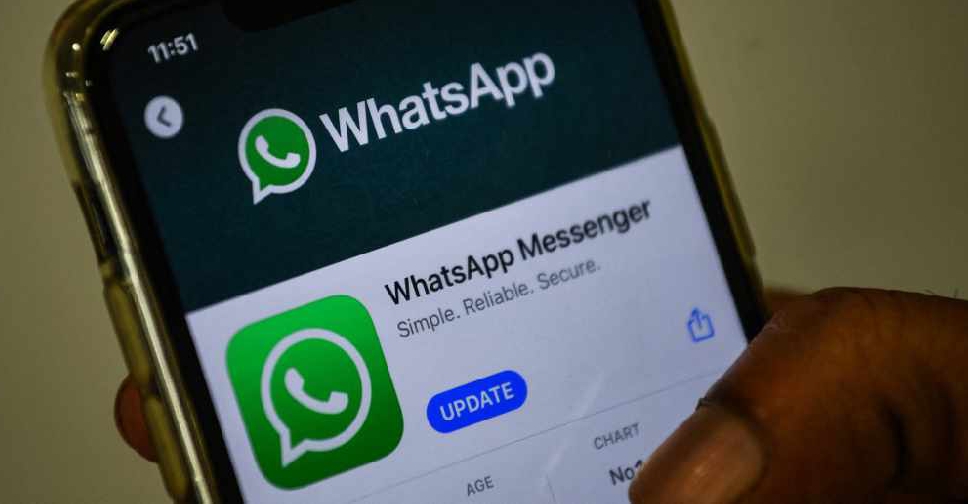
WhatsApp has filed a legal complaint against the Indian government over new regulations that it says could undermine users' privacy.
In a lawsuit, filed in Delhi High Court, the messenger service said the government's new "traceability" rule that makes it mandatory for tech firms to share details about users violated their right to privacy constitutionally.
It added that to comply with the law, it would also have to break its own end-to-end encryption.
While the law requires WhatsApp to unmask only people credibly accused of wrongdoing, the company says it cannot do that alone in practice.
"Requiring messaging apps to 'trace' chats is the equivalent of asking us to keep a fingerprint of every single message sent on WhatsApp, which would break end-to-end encryption and fundamentally undermines people's right to privacy," WhatsApp, which has nearly 400 million users in India, said.
"We have consistently joined civil society and experts around the world in opposing requirements that would violate the privacy of our users. In the meantime, we will also continue to engage with the government of India on practical solutions aimed at keeping people safe, including responding to valid legal requests for the information available to us," said a spokesperson of the California-based Facebook unit.
The lawsuit escalates a growing struggle between Indian Prime Minister Narendra Modi's government and tech giants including Facebook, Google parent Alphabet and Twitter in one of their key global growth markets.
Tensions grew after a police visit to Twitter's offices earlier this week. The micro-blogging service had labelled posts by a spokesman for the dominant party and others as containing "manipulated media", saying forged content was included.
The government has also pressed the tech companies to remove not only what it has described as misinformation on the COVID-19 pandemic ravaging India, but also some criticism of the government's response to the crisis, which is claiming thousands of lives daily.
The response of the companies to the new rules has been a subject of intense speculation since they were unveiled in February, 90 days before they were slated to go into effect.
The Intermediary Guidelines and Digital Media Ethics Code, promulgated by the ministry of information technology, designates "significant social media intermediaries" as standing to lose protection from lawsuits and criminal prosecution if they fail to adhere to the code.
WhatsApp, its parent Facebook and tech rivals have all invested heavily in India. But company officials worry privately that increasingly heavy-handed regulation by the Modi government could jeopardize those prospects.
Among the new rules are requirements that big social media firms appoint Indian citizens to key compliance roles, remove content within 36 hours of a legal order, and set up a mechanism to respond to complaints. They must also use automated processes to take down pornography.
Facebook has said that it agrees with most of the provisions but is still looking to negotiate some aspects. Twitter, which has come under the most fire for failing to take down posts by government critics, declined to comment.
Some in the industry are hoping for a delay in the introduction of the new rules while such objections are heard.
The WhatsApp complaint cites a 2017 Indian Supreme Court ruling supporting privacy in a case known as Puttaswamy, the people familiar with it said.
The court found then that privacy must be preserved except in cases where legality, necessity and proportionality all weighed against it. WhatsApp argues that the law fails all three of those tests, starting with the lack of explicit parliamentary backing.
Experts have backed WhatsApp's arguments.
"The new traceability and filtering requirements may put an end to end-to-end encryption in India," Stanford Internet Observatory scholar Riana Pfefferkorn wrote in March.
Other court challenges to the new rules are already pending in Delhi and elsewhere.
In one, journalists argue that the extension of technology regulations to digital publishers, including the imposition of decency and taste standards, is unsupported by the underlying law.



 Australia passes social media ban for children under 16
Australia passes social media ban for children under 16
 17 killed as Israel ups bombing in Gaza
17 killed as Israel ups bombing in Gaza
 Israeli tank fires on south Lebanon
Israeli tank fires on south Lebanon
 Landslides in Indonesia's Sumatra kill at least 27
Landslides in Indonesia's Sumatra kill at least 27
 Syrian armed group makes first advance in years
Syrian armed group makes first advance in years







